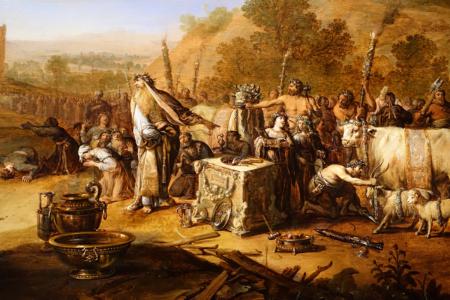Who is to blame for Red Sox woes
If Red Sox fans had known two decades ago that their team would win four World Series trophies in 15 years, more than any other franchise in baseball, they'd have been giddy with joy. That's just what happened, yet today Red Sox Nation is disillusioned; in fact, it's rip-roaring mad.
People, even those who root for the Red Sox, have short memories. We tend to forget what life was like before the glory years of Ortiz, Ramirez, Betts, Martinez, and Schilling -- yes, that Curt Schilling. Sox followers lived through generations haunted by the ghosts of Bucky Dent and Bill Buckner; some of us still had nightmares about Enos Slaughter and Denny Galehouse. Almost no one alive could remember back to the days of the early 20th century, when the Red Sox were the scourge of the baseball world, winning championship after championship.
We got used to winning. Now that the winning has stopped -- at least it has for the foreseeable future -- we look around for someone to blame. The first target in our sights is Chaim Bloom. After all, he's the guy who traded Mookie Betts, putting us on the fast-track to mediocrity and below. But wait a minute. It turns out that Bloom was under orders to make the deal. Well then, what about the fact that Bloom let Xander Bogaerts walk away as a free agent, when Xander would have preferred to stay here? Bloom's defenders, of whom there seem to be fewer and fewer these days, counter that he was never given the financial leeway to make a competitive offer. Whatever the reason, he is a man with a target on his back and, if the team gets off to a slow start next year, would be well-advised not to buy any green bananas.
Bloom is, and has been from his first day on the job, been put into a lose-lose situation. But if not him, who should be the next logical target? How about the people who control the purse strings, who give Bloom his marching orders? The owners. That would be the Fenway Sports Group, headed by John Henry.
John Henry is the man who made those four World Series titles possible in the first place. It is he who spent the big bucks to Reverse the Curse, make the Red Sox champions, and grow their payroll into one of the largest in all of baseball. It never would have happened without him and his financial commitment. Now he's the villain? Really?
The Fenway Sports Group (FSG) and Henry have stopped spending big money on baseball just when everyone else has gone on a spending spree. Many believe that the reason is that it has set its sights on an NFL or possibly an NBA team as a way of expanding its professional sports profile and is saving its pennies with that in mind. Just last year, it bought the Pittsburgh Penguins of the NHL, so that theory does make some sense. But has anyone thought about the possibility that John Henry and his cohorts might know something that the rest of us might not? After all, he accrued his vast fortune by reading the financial markets quicker and more astutely than anyone else. The millions that he spent on the Red Sox when he first took control turned out to be a very wise investment. His franchise is now worth more than three times what it was when he first bought it (it's now over two billion dollars). Is this the time not to be spending big, just when everyone else is? The San Diego Padres, one of the biggest spenders this year, play in one of MLB's largest cities, but in one of its smaller markets. Immediately to the south is Mexico and less than a hundred miles north is the mega-market of Los Angeles. Will they be able to sustain their heavy level of spending over the long run? We won't know the answer next year or even the year after that, but 10 years from now, when Xander Bogaerts is still drawing down those hefty paychecks, we'll all know the final verdict.
All of this is just speculation on my part. None of us can predict with certainty what the future holds. Who could have predicted in 2004, for example, that Curt Schilling, one of the great heroes of that post season -- his "bloody sock" game is a monument to valor under pressure; we all thought he had punched his ticket to the Hall of Fame, and deservedly so -- would end up talking his way out of election. He seemed unable to restrain himself from making divisive comments about minority groups. The last straw was when he directly insulted the motives and morality of the Baseball Writers of America, the very people who voted on his candidacy. He still received 71 percent of their votes. That's a lot but not enough to get him the 75 percent needed for election. He got almost no support at all when theVeterans Committee met last month. It makes him the only man to have ever shot himself in the foot on his way to the Hall of Fame. It's not something he should be proud of; on the other hand, his record as a big game pitcher is.
- Dick Flavin is a New York Times bestselling author; the Boston Red Sox "Poet Laureate" and The Pilot's recently minted Sports' columnist.



















